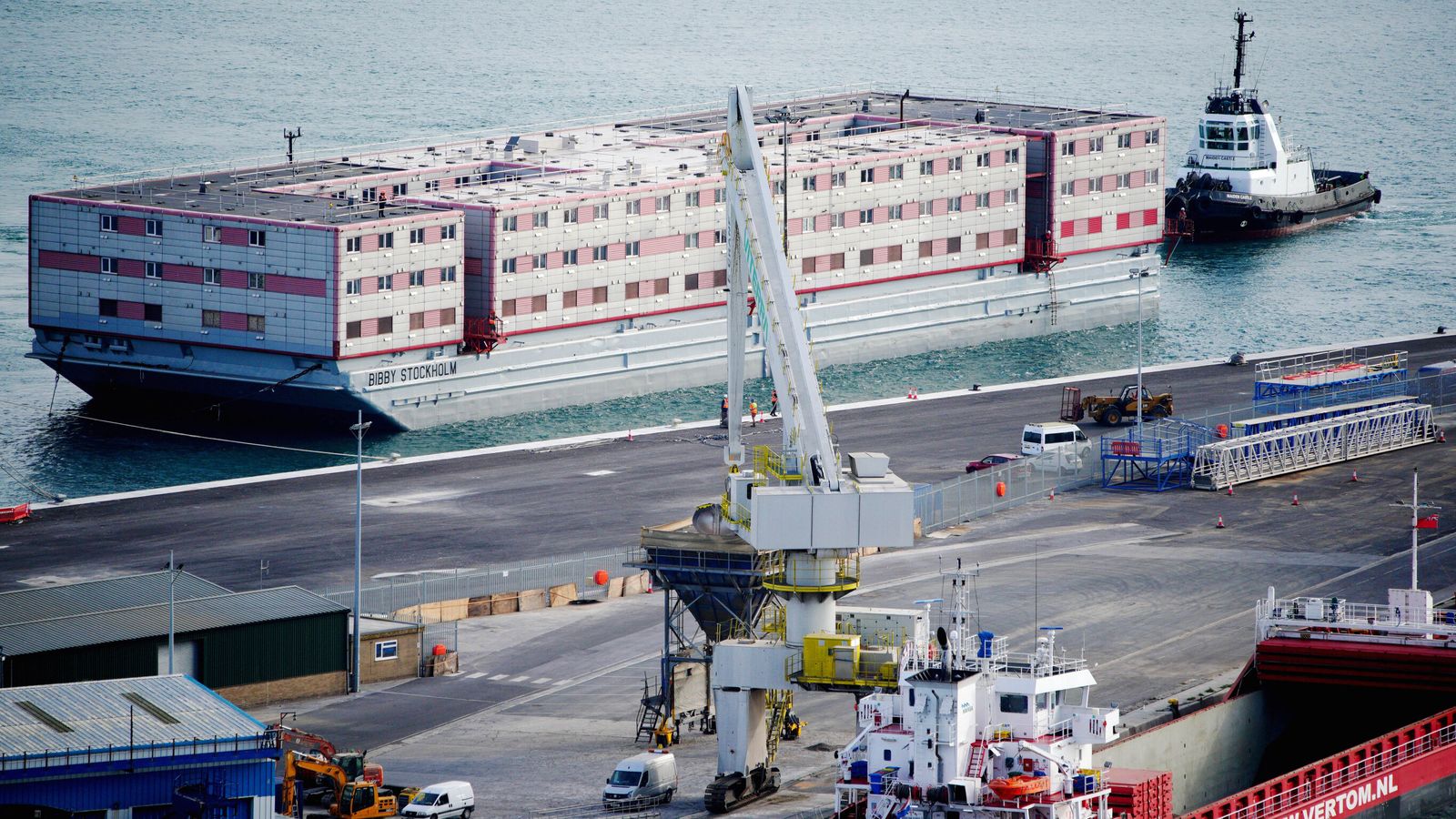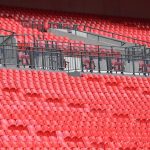The arrival of the first asylum seekers at the controversial Bibby Stockholm barge has been delayed until next week at the earliest, Sky News understands.
The vessel, which has been opposed by the local MP and residents, arrived in Portland on the coast of Dorset last week.
In a tweet on 18 July announcing its arrival, the Home Office said: “Next week the first asylum seekers will be moved to the vessel as part of a carefully structured plan which will increase the numbers gradually.”
Politics Live: Green policies ‘can’t penalise people’, Michael Gove says
However, it is understood more work is needed to make the vessel ready to accommodate the first arrivals.
The 222 bedroom barge will start housing the first 50 single men next week at the earliest.
It is is expected to ultimately house 500 people who are currently staying in hotels.
Bibby Stockholm: What it’s like inside the barge that’s set to house asylum seekers
Bibby Stockholm: Controversial barge that is set to house 500 asylum seekers arrives in Dorset
Lords back down over controversial government plans to stop small boats crossing the Channel
The government has been seeking out new accommodation for asylum seekers, including those who cross the Channel in small boats, claiming the hotel bill to house them has hit £6m a day.
As well as the barge, it has taken over former military bases, and reports have even suggested large marquees could be used.
But ministers have faced a backlash from local residents, councils and MPs if their areas have been chosen for the new sites.
Regarding the Bibby Stockholm, concerns have been raised about safety and the impact of the arrival of hundreds of asylum seekers on local services like healthcare.
Charities have branded the plan “cruel” and claimed refugees will be subject to “detention-like” conditions.
However, the Home Office has denied the barge is like a “floating prison” and said the people on board would be “free to come and go as they want”.
The Bibby Stockholm will have 24-hour security and accommodate single men only, who will sleep in bunk beds with between two and six people per en-suite room.
A canteen, gym, classroom, exercise yards, television room and space for worship are among the “basic” facilities on board.
A nurse will also be stationed on the barge five days a week, with asylum seekers having access to a doctor if needed.






















